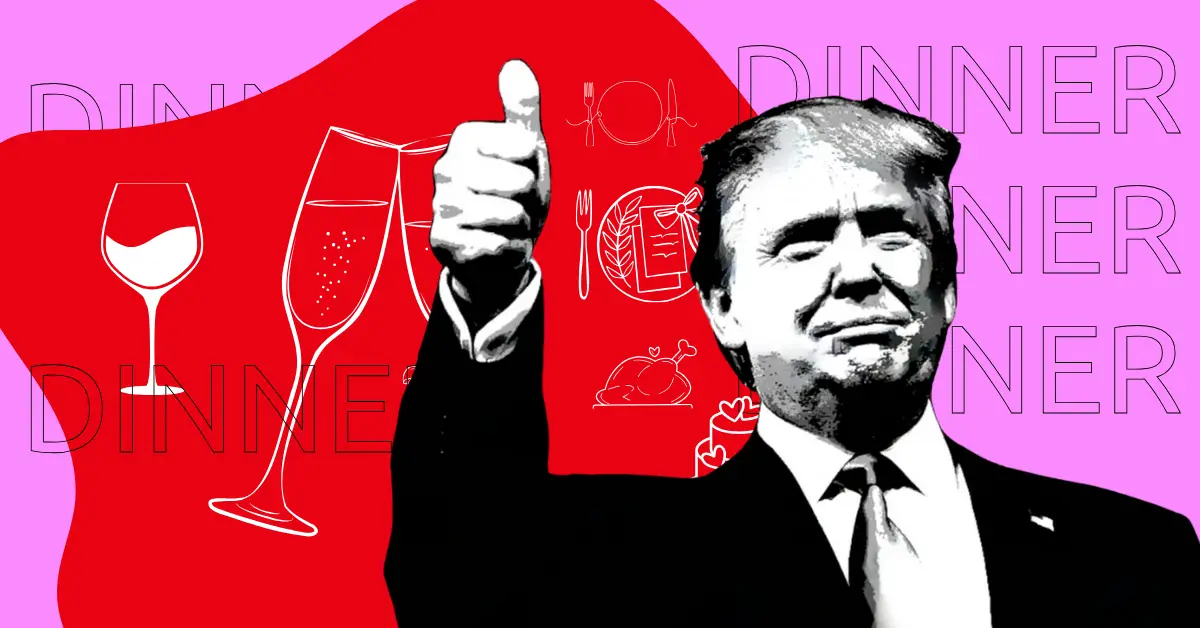
In recent months, a political storm has been brewing around former President Donald Trump, fueled not just by the usual partisan skirmishes but by an intriguing and somewhat shadowy affair involving cryptocurrency. At the heart of the controversy lies a private dinner event where a group of major investors acquired a digital currency linked to Trump—dubbed the “$TRUMP coins.” This event has drawn the intense scrutiny of several top Democratic lawmakers, notably Representative Jamie Raskin, the Ranking Member of the House Judiciary Committee, who is demanding transparency and accountability concerning the dealings connected to this nascent crypto venture.
The core of the uproar revolves around this discreet gathering where prominent investors purchased millions in $TRUMP meme coins, a form of digital currency that combines the speculative attractivity of meme culture with powerful political branding. Reports from respected media outlets including The Intercept and Anadolu Ajansı reveal that Raskin has formally requested the White House to disclose a comprehensive list of attendees who participated in the dinner. Beyond merely identifying guests, there’s a strong push to unveil the origins of the funds used for these crypto purchases. This investigation seeks to uncover if any unethical or illegal financial transactions occurred, and whether domestic or foreign entities with vested political interests might have influenced or manipulated the deal.
This demand for disclosure touches on multiple vital themes. First and foremost is the issue of public accountability and trust. The lack of transparency about who plowed tens of millions into these crypto assets raises serious red flags about potential corruption or undue influence. When political figures engage in high-stakes financial dealings behind closed doors, without adequate disclosure, it undermines public confidence and stokes suspicion that policy decisions could be swayed by private financial incentives. Raskin’s probe appears to be part of a wider movement to hold significant political influencers accountable for their financial behavior, especially at a time when cryptocurrencies exist largely outside comprehensive regulatory frameworks, inviting potential misuse.
Second, the timing and nature of the event itself bring added urgency to the situation. Cryptocurrencies are increasingly embedded within political and economic discussions, representing a frontier where technology and finance merge in often unpredictable ways. The $TRUMP coin phenomenon exemplifies how political figures might leverage emerging digital financial tools like meme coins—notorious for wild price fluctuations and susceptibility to market manipulation—for personal advantage. Delving into the investors’ identities and tracing the flow of funds may reveal whether backdoor dealings or conflicts of interest threaten both market integrity and investor safety. It’s a rare spotlight on how politics can intersect with the volatile, fast-evolving world of crypto-assets.
Thirdly, this episode invites broader reflection on regulatory challenges facing cryptocurrencies in the United States. Despite their growing mainstream adoption, digital currencies still exist in legal limbo, with patchy requirements for transparency and reporting. The involvement of high-profile political figures only magnifies the risks of market distortion, insider advantages, and opaque financial maneuvers. Representative Raskin’s role gives him leverage to advocate for stronger regulatory regimes, designed to impose stricter disclosure and oversight that might prevent similar controversies. His push mirrors a growing congressional effort to better understand and control digital currencies, framed by concerns about national security, economic stability, and political ethics in an increasingly digital financial ecosystem.
In sum, the investigation into the private dinner event and $TRUMP coin investments encapsulates the complex entanglement of political power with the uncharted world of cryptocurrencies. The request for full disclosure of attendees and financial sources signals a broader demand for clarity in a domain where rules are still catching up to innovation. As the inquiry unfolds, it will not only shed light on the specifics of this crypto incident but may also set important precedents for how digital assets are managed in political contexts going forward. This case serves as a telling example of the urgent need for transparency and oversight, especially as the lines blur ever more between politics and emerging financial technologies.
